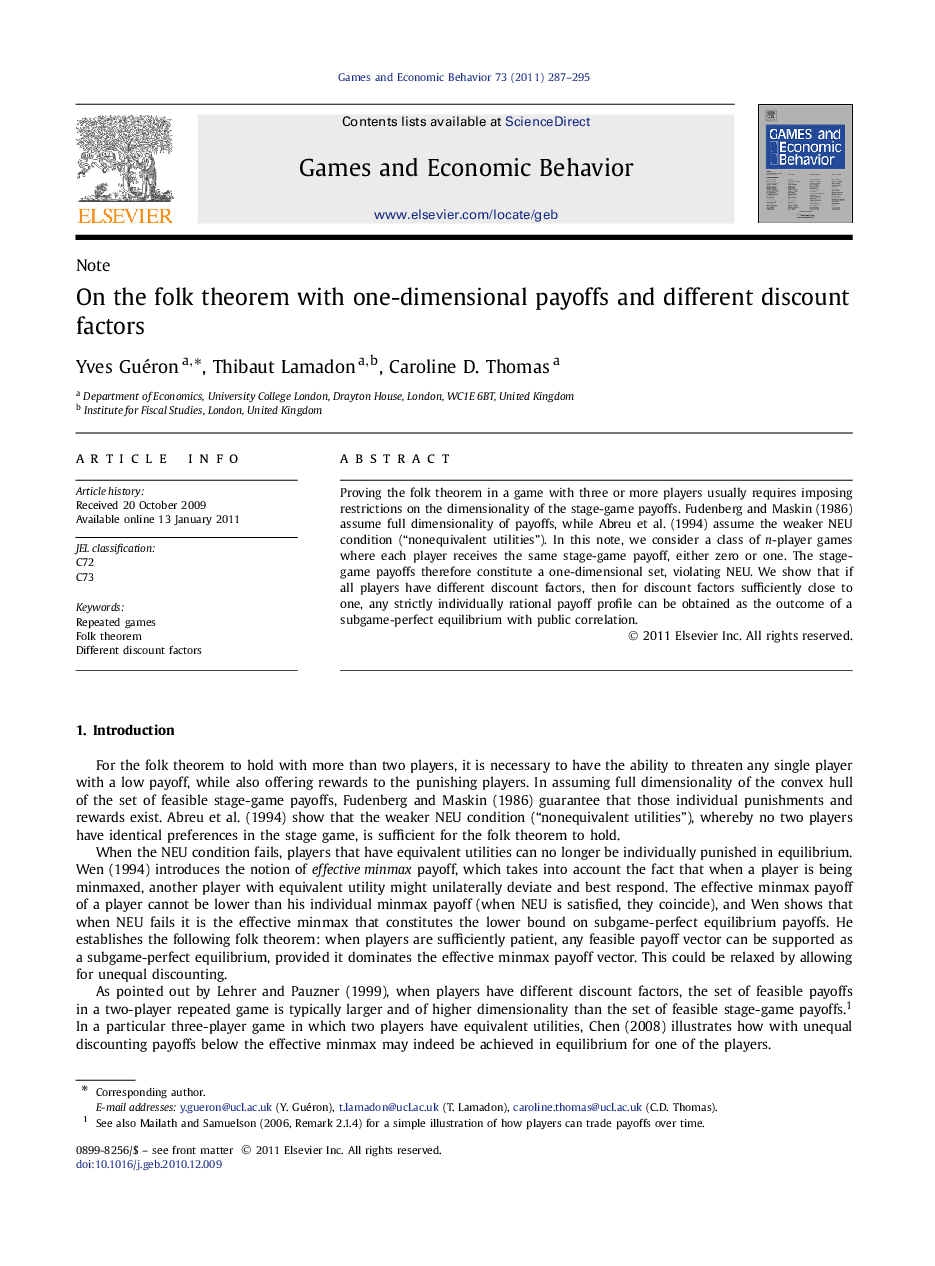| Article ID | Journal | Published Year | Pages | File Type |
|---|---|---|---|---|
| 5072170 | Games and Economic Behavior | 2011 | 9 Pages |
Abstract
Proving the folk theorem in a game with three or more players usually requires imposing restrictions on the dimensionality of the stage-game payoffs. Fudenberg and Maskin (1986) assume full dimensionality of payoffs, while Abreu et al. (1994) assume the weaker NEU condition (“nonequivalent utilities”). In this note, we consider a class of n-player games where each player receives the same stage-game payoff, either zero or one. The stage-game payoffs therefore constitute a one-dimensional set, violating NEU. We show that if all players have different discount factors, then for discount factors sufficiently close to one, any strictly individually rational payoff profile can be obtained as the outcome of a subgame-perfect equilibrium with public correlation.
Keywords
Related Topics
Social Sciences and Humanities
Economics, Econometrics and Finance
Economics and Econometrics
Authors
Yves Guéron, Thibaut Lamadon, Caroline D. Thomas,
